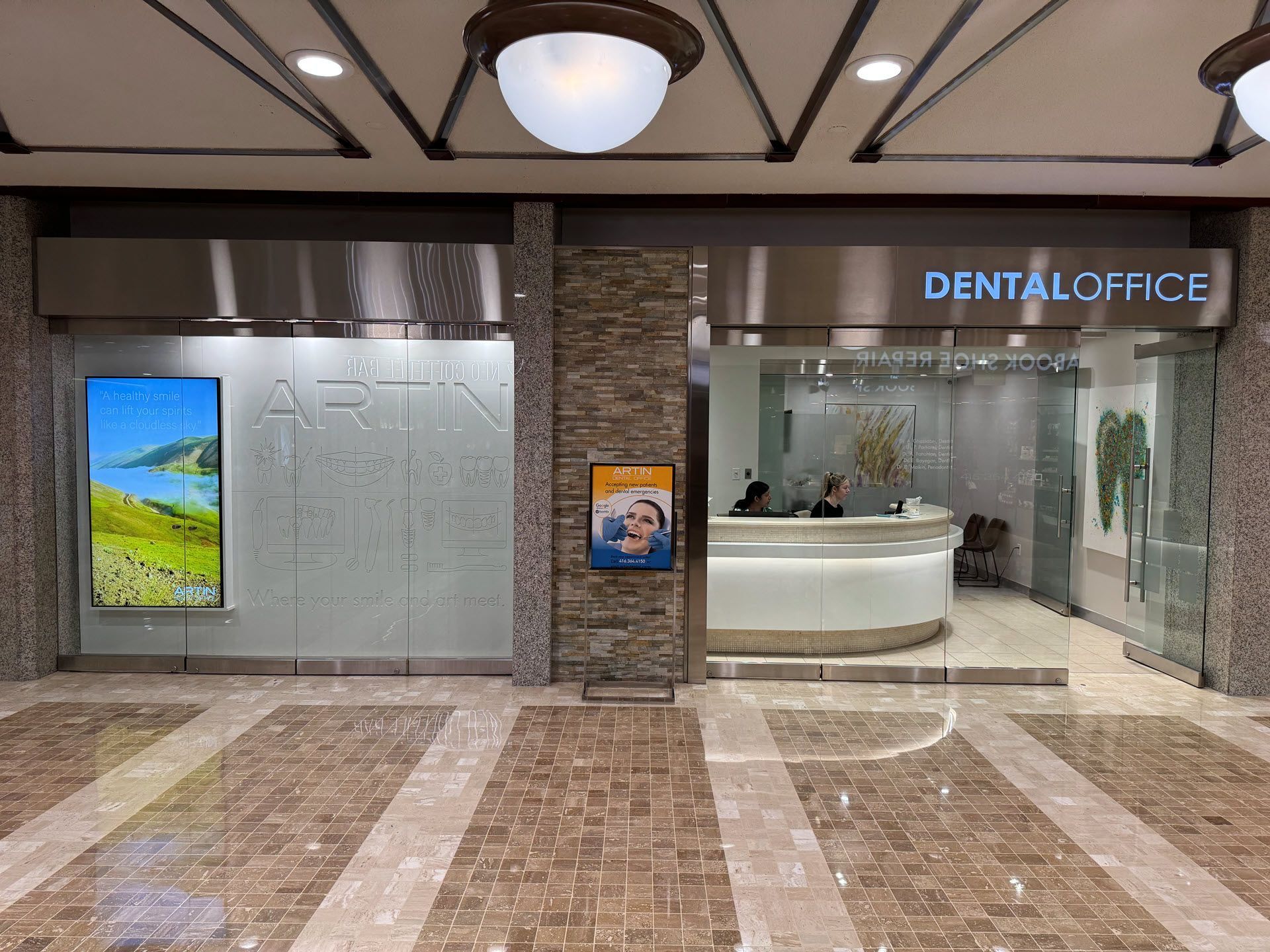Tooth Replacement Options: Let’s Bring Back Your Beautiful and Confident Smile
There's no denying that a missing tooth steals uncomfortable attention and judgment. It is natural for many people to hide that space between their teeth, making them reluctant to smile and talk. But that will only turn a minor problem into a big struggle as there are severe consequences for tooth loss, much more severe for a neglected one. You must know that hiding tooth loss is not the right way to deal with it. The best solution is to get a tooth replacement from a trusted dentist.
Through tooth replacement, you can cure the discomfort in your mouth, and the overall health of your teeth will be good as well. But did you know? There are different tooth replacement options you can choose from. For that reason, it will be beneficial to know your options here first before you book an appointment.
Consequences of Tooth Loss
When it comes to tooth loss, the cause doesn't particularly matter; whether it is caused by accident or extraction for therapeutic purposes, you will still be left with an open space whenever you smile or talk. The space is naturally unattractive, causing insecurity and embarrassment for you.
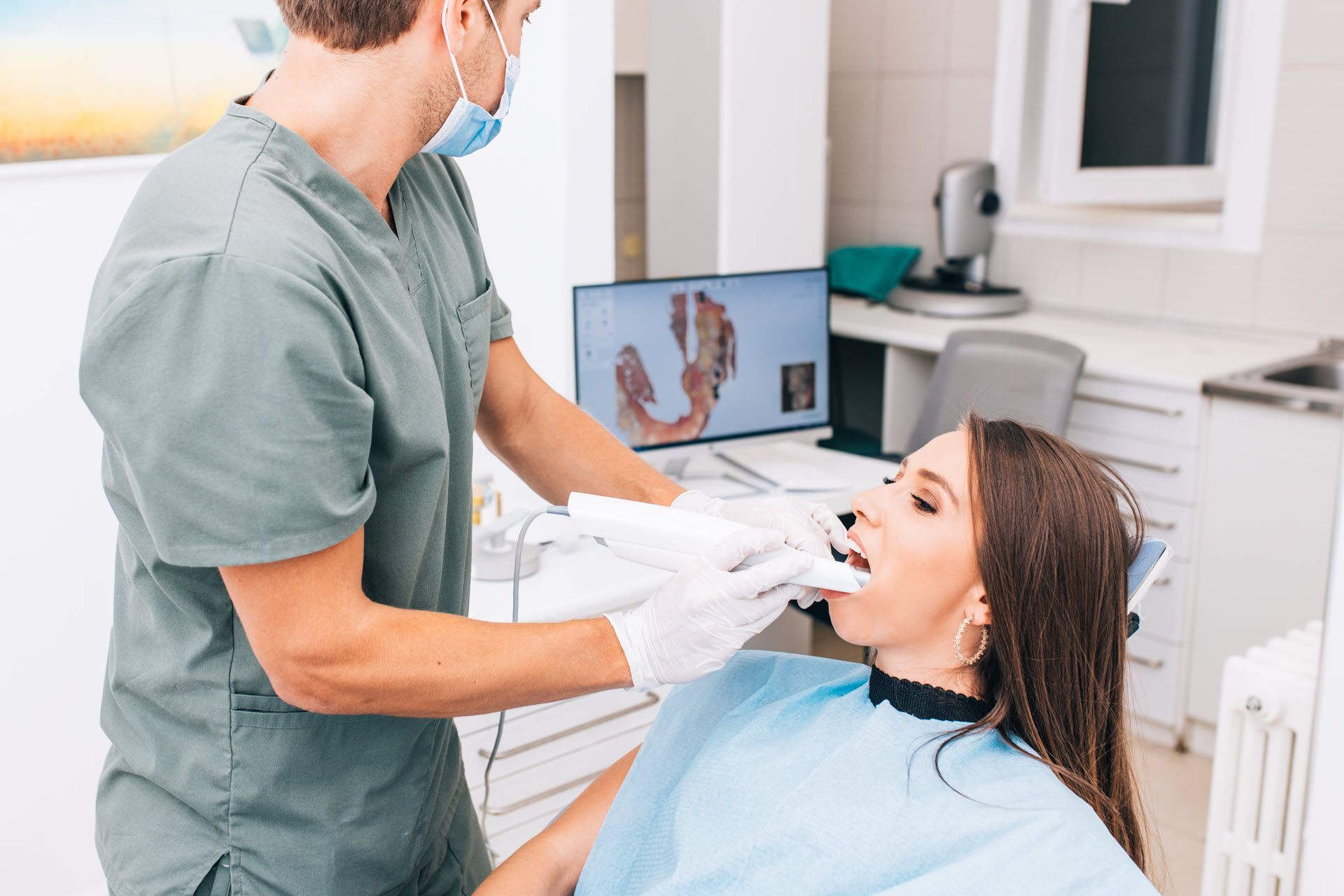
Tooth loss can be obvious and embarrassing whenever you open your mouth. But it can be worse than that. More than the unsightly appearance, tooth loss can also give you more teeth problems and bad breath. With all of that can happen, your day-to-day activities will also be negatively affected. There will always be the feeling of bothering discomfort.
Thankfully, you can save yourself from the consequences of tooth loss by getting a tooth replacement as quickly as possible.
The Spacing of Other Teeth
Unbeknown to many, the space of tooth loss matters. There are some instances when the opposite arch where the tooth is removed is negatively affected. Also, the teeth drifting or gradual movement of teeth can happen due to significant changes in the bite relationship, which each tooth has.
If you are missing one tooth, there will be a tooth that won't have a bite partner. That specific tooth will tend to “super-erupt” and cause problems in its effort to have a new biting partner. Even a little movement of that tooth can already cause chain reactions. Once that happens, more severe problems will occur.
If you delay getting a tooth replacement, you can turn a supposedly minor problem into more complications. Here are some more problems that tooth loss can cause, leaving you with more than one dental issue.
- Cavities
- Leaning Teeth
- Gaps
- Minor Crowding
- Chipped Teeth
- TMJ Disorder
- Gum Disease
- Worn Enamel and Dental Restorations
Negative Impact of Tooth Loss on Social Life
Aside from dental health issues, your social life can also be negatively influenced by just experiencing tooth loss. You can be extremely bothered by the appearance of your smile if you are missing a tooth in front. And the same dilemma happens if tooth loss is not far back in your mouth. In short, a visible, eye-catching tooth loss can impact your social life.
As you might think more about your missing tooth, you can eventually feel more conscious whenever you talk, laugh, or smile. What's more, if your missing tooth is verbally discussed with you, it can sway you to hold back your smile and be more reluctant about socializing. Ultimately, you might leave a bad impression on people by just refraining from smiling and laughing.
You can save yourself from the negative consequences of tooth loss by knowing what to do. Know your best tooth replacement options below.
Which Tooth Replacement Options are Best for You?
The traditional procedures top the lists when discussing the best tooth replacement options. These traditional tooth replacement options include full mouth and partial dentures, which can be conventional or immediate.
Dentures are utilized if all your teeth are missing or need to be extracted because of tooth decay or extensive gum disease. Conventional dentures require all your teeth to be extracted first and the gums to heal. That means there's a waiting time dedicated to the healing process.
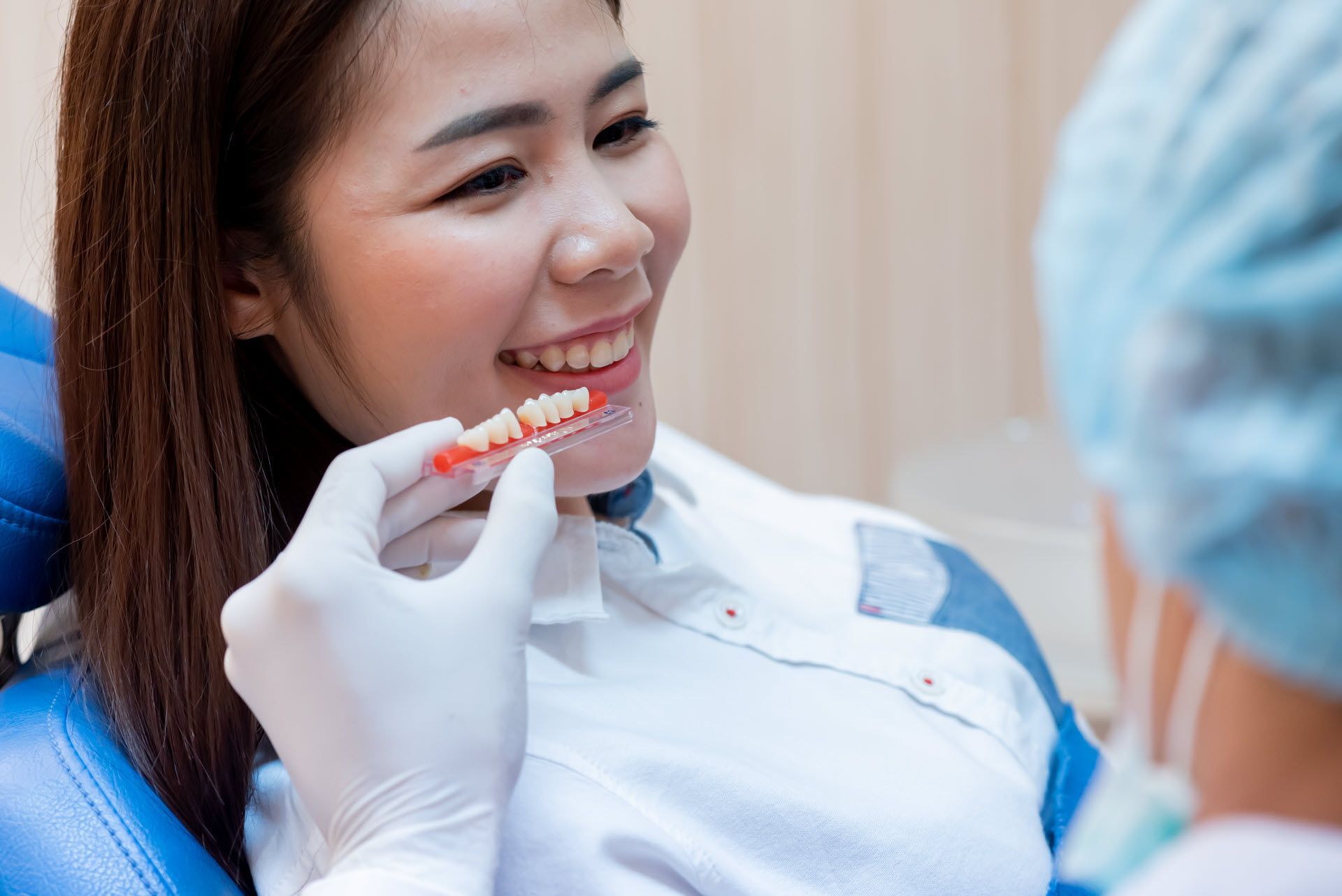
Some patients even need to wait several weeks without teeth for conventional dentures. That's the complete opposite with immediate dentures because you can already get them right after the extraction of your teeth. It is also noteworthy that immediate dentures require adjusting after the healing period.
Full mouth dentures replace your entire teeth with one prosthesis. In this case, not only are unhealthy teeth extracted, but all your existing teeth before putting the dentures. On the other hand, partial dentures only replace the missing tooth, leaving existing healthy teeth untouched. Another highlight for partial dentures is the use of a minor framework clasped into place around your existing teeth to add stability.
Additionally, partial dentures are minimalist and don't attract much attention. Since not all teeth need to be extracted for partial dentures, they have a more budget-friendly approach to tooth loss.
Let's check out the other tooth replacement options below.
Fixed Dental Bridges
A fixed dental bridge works exactly like how it sounds. It gives a fixed restoration, designed to hold a false crown between two functional crowns. The functional crowns are anchored onto the teeth, which can be placed on either side of the missing tooth.
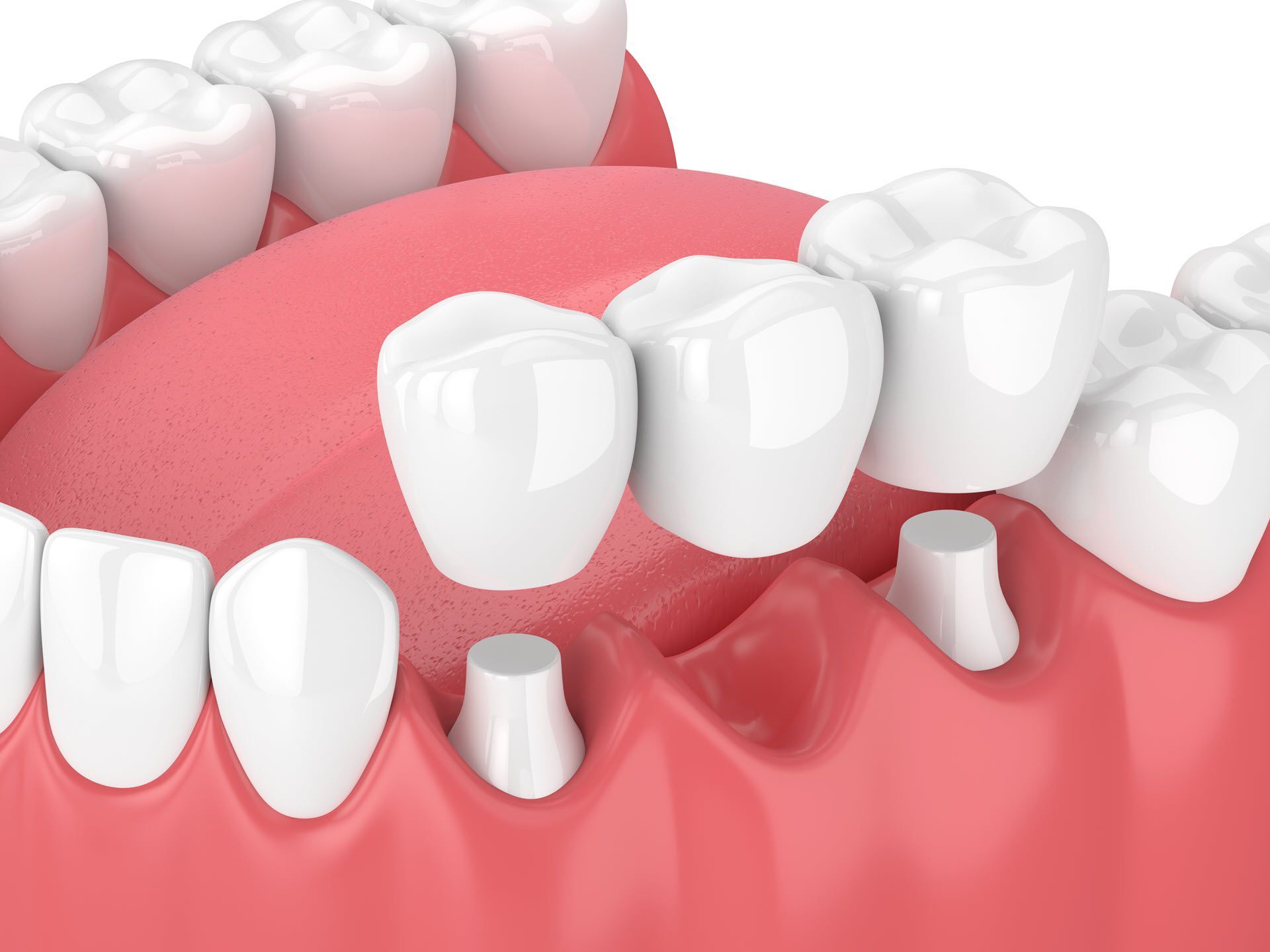
The requirement to get this tooth replacement option is to have a healthy, stable tooth on each side to properly support the bridge. These teeth are prepped for the crown. Then, a custom bridge is designed.
With that requirement, this tooth option is unfortunately not practical without healthy teeth around. However, you can still try this since the bridges can be anchored directly onto dental implants if you need to replace more than one tooth.
Fixed dental bridges option primarily suits anyone who needs to replace 3 to 4 teeth at once.
Dental Implants
Currently, the dental implant is the most preferred tooth replacement method. A dental implant is designed to work as an independent tooth. It is typically made from a prosthetic titanium root and is meant to support the restoration, like a bridge or crown.
What's impressive about dental implants is that they tend to be much stronger than natural teeth. They are high-quality and long-lasting, proving they are worth your money.
You will need one implant and crown for a single tooth that needs to be replaced.
Dental implants have revolutionized the field of tooth replacement and have become the gold standard for both single-tooth and multiple-teeth replacements. They offer numerous benefits over traditional options like bridges and dentures, including improved functionality, aesthetics, and durability.
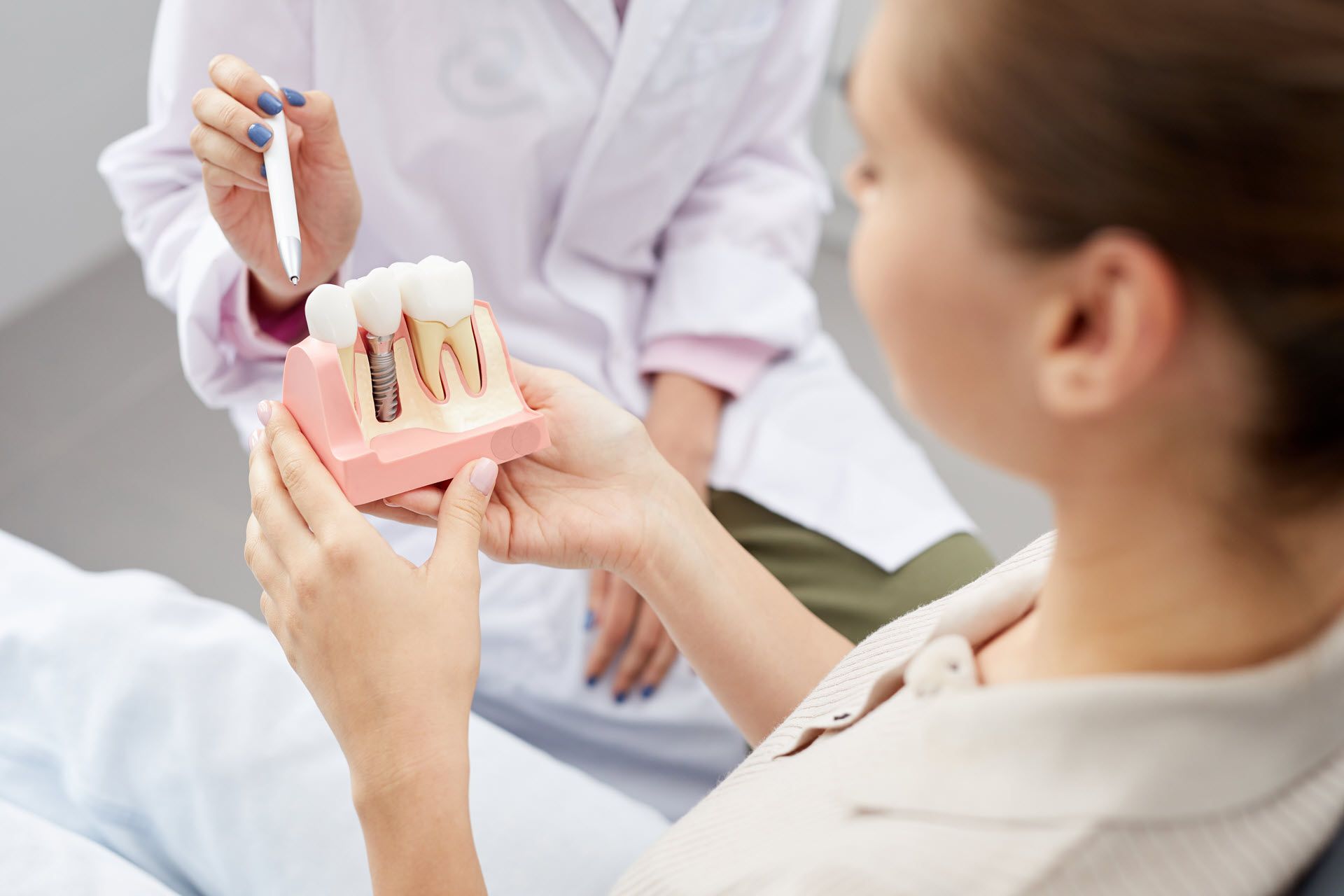
Dental Implant Components
A dental implant consists of three main components:
Implant: This is the prosthetic titanium root that is surgically placed into the jawbone. Titanium is used due to its biocompatibility, allowing it to integrate with the surrounding bone in a process called osseointegration. This process creates a strong and stable foundation for the replacement tooth.
Abutment: The abutment is the connecting piece that attaches the implant to the dental restoration. It is usually made of titanium, ceramic, or zirconia and serves as the foundation for the crown, bridge, or denture.
Dental Restoration: The dental restoration is the visible part of the implant, which replaces the missing tooth. It can be a crown, bridge, or denture, and is usually made from porcelain, ceramic, or zirconia to ensure a natural appearance and durability.
The Dental Implant Procedure
The dental implant procedure generally takes place in several stages:
Consultation and planning: A thorough evaluation of the patient's dental and medical history is conducted, followed by dental imaging and impressions to create a precise treatment plan.
Implant placement: The dental implant is surgically placed into the jawbone. This procedure is typically performed under local anesthesia.
Healing and osseointegration: It takes approximately three to six months for the implant to fully integrate with the jawbone. During this time, a temporary restoration may be used to maintain aesthetics and function.
Abutment placement: Once the implant has integrated with the bone, the abutment is attached to the implant.
Dental restoration placement: The final restoration, such as a crown, bridge, or denture, is secured to the abutment, completing the procedure.
Implant Retained Dentures
Implant retained dentures offer a significant improvement over traditional dentures by providing a secure and stable fit that prevents slipping and discomfort. They can be either removable or fixed, depending on the patient's preference and needs.
Removable implant retained dentures, also known as overdentures, are held in place by attachments on the dental implants. They can be removed for cleaning and maintenance but provide a secure fit when worn.
Fixed implant retained dentures, also called hybrid dentures or fixed full arch prostheses, are permanently attached to the dental implants, providing maximum stability and function.
Implant retained dentures require a smaller number of implants compared to replacing each tooth individually, making them a more cost-effective and practical option for individuals with multiple missing teeth.
Implant Retained Dentures
Implant retained dentures are designed to provide stability and support to dental implants together with the full coverage of a denture. At the same time, they bring greater reliability and comfort, leaving you no worries about your dental care.
Dentures can be secured using about 2 to 4 dental implants. The dental implants needed for dentures typically vary because some people also opt to use mini dental implants instead to securely hold their dentures.
In conclusion, dental implants have become the preferred method for tooth replacement due to their superior strength, durability, and aesthetic appeal. Implant retained dentures offer additional benefits for patients who require full or partial denture support, resulting in improved comfort and function. With proper care, dental implants can last a lifetime, making them a worthwhile investment for patients seeking to restore their oral health and smile.
How to Choose the Best Tooth Replacement Option for You?
To help you choose, here are some questions you can ask yourself. This way, you can process the information well when talking to your dentist.
Book Your Appointment Today
Experience a one-of-a-kind dental treatment with Artin Dental. Talk to us about anything regarding dental care to be guided well. Please don’t wait any longer. Let us help you solve your tooth loss with the best replacement option suitable for you.
It is time to bring back your beautiful and confident smile. Book your appointment today.
